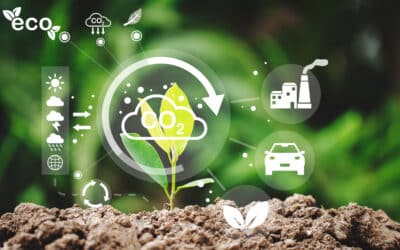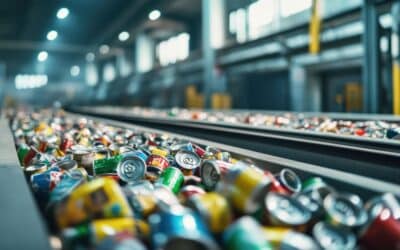The R2 Standard
The R2 standard sets the industry benchmark for electronics repair and recycling. The most recent version, R2v3, replaced R2:2013 in 2021. Until now, businesses have been able to remain certified to that older version. But on June 23, 2023, all R2:2013 certificates officially expired.
What does that mean for you? If you’re certified to R2:2013, you have a strict deadline to transition to the new version of the standard.
But what changes will you face, and how can you meet them successfully? Read on to learn more.
The Biggest Challenge: ISO Certification
R2 requires certification to several ISO standards. These standards, published by the International Organization for Standardization, set internationally recognized benchmarks in areas such as quality, information security, environmental protection, and occupational health and safety.
Older versions of R2 required certification to ISO 14001 (Environmental Protection) and ISO 45001 (Occupational Health and Safety). A new requirement adds ISO 9001 (Quality Management) to the list. All three ISO certifications must be up-to-date in order to transition to R2v3.
If you don’t already have these standards in place, it probably sounds like an overwhelming task. Let’s take a look at these three standards and how you can implement them seamlessly together.
ISO 9001
ISO 9001:2015 lays out international best practices for quality management systems. It’s the most popular ISO standard, with over a million companies certified worldwide.
If you’re not currently certified to ISO 9001, you might think it’s only for large organizations, or that it simply creates extra busy work. However, the latest version of the standard (ISO 9001:2015) was specifically designed to make certification simpler for small businesses.
ISO 9001 follows the PDCA cycle (Plan, Do, Check, Act) to ensure continually improving quality. Multiple other ISO standards share this basic structure. As such, ISO 9001 serves as the background for many other certifications, including those required by R2v3. If you’re certified to ISO 9001, you’re already well on your way to achieving ISO 14001 and ISO 45001.
What If My Business Follows ISO 9001:2008?
If you were last certified to ISO 9001:2008, the previous version of the standard, you won’t be prepared for the transition to R2v3. R2 now requires a current certification to ISO 9001:2015. We have some great resources for making a successful transition from ISO 9001:2008 to ISO 9001:2015. You will probably find the new version simpler and more effective for your business.
ISO 14001
ISO 14001 sets the international standard for environmental management systems. This standard helps businesses reduce negative environmental impacts while increasing positive environmental impacts. It can also help you reduce costs and waste. The latest version was published in 2015.
This standard also boosts the credibility and reputation of your business by proving that you treat the environment responsibly.
ISO 45001
ISO 45001 deals with occupational health and safety management systems. Originally OHSAS 18001, this standard exists to help businesses prevent injury and ill health in the workplace. The latest version was published in 2018.
With ISO 45001, you can decrease the disruptions and downtime caused by workplace incidents. But most importantly, it helps you effectively create a safe, healthy environment for your employees.
Making ISO Certification Simple
If you face the need to certify to all three of these standards, you likely feel overwhelmed. We understand. We’ve been there ourselves, and we’ve walked hundreds of other companies through the process.
Here’s the secret: ISO standards are built to work together. You can certify to multiple standards at once as an Integrated Management System (IMS). Instead of having separate management systems, separate management review sessions, and separate audits, you can combine them all into one seamless process.
Contact us or give us a call to learn how you can save time and money with an IMS.
Other R2 Changes
If you’re transitioning to R2v3, or if you’re pursuing certification for the first time, you will need the ISO certifications mentioned above. But you also must pay attention to the other changes in the updated R2 standard:
Reuse and Protecting Data
R2v3 employs enhanced controls for testing, repair, and reuse. It also puts a greater emphasis on data protection than R2:2013.
Stronger Requirements for Key Areas
In several key areas, the requirements of R2 have become stricter. These areas include data protection, flow-down of material to vendors, and environmental health and safety.
A More Adaptable Standard
R2 applies to all sorts of businesses. Now the standard reflects that diversity. R2v3 is built to fit all the various business models in the industry. The standard now contains two sets of requirements:
Core Requirements. These apply to all R2-certified businesses.
Process Requirements. These apply only to facilities that perform specific processes.
This change makes the R2 standard much more achievable and adaptable, especially for small businesses that don’t perform all the processes covered by R2.
How Core Can Help
The transition to R2v3 doesn’t need to be an overwhelming process. At Core Business Solutions, we specialize in helping small businesses achieve certification to R2 and ISO standards. We combine hands-on consulting, cloud-based software, and expert training to make the entire process simple and effective.
If you feel daunted by the R2 transition deadline, contact us. We’ll make sure you cross the finish line in time to avoid any interruption in your R2 certification.
Contact us or give us a call at 866.354.0300 to learn more.



